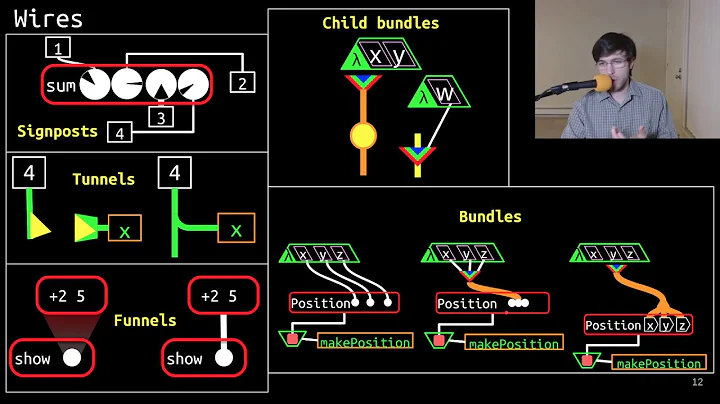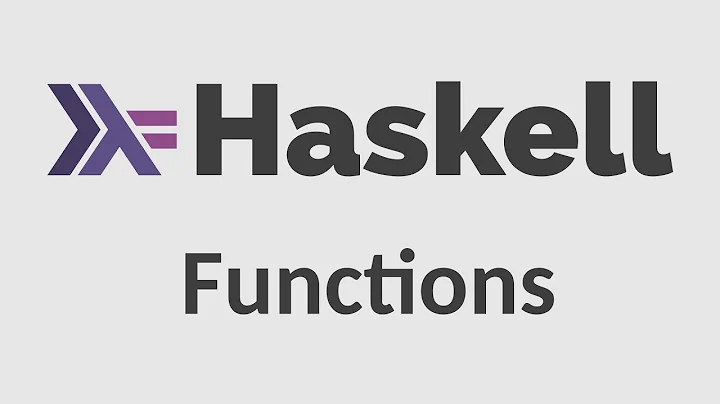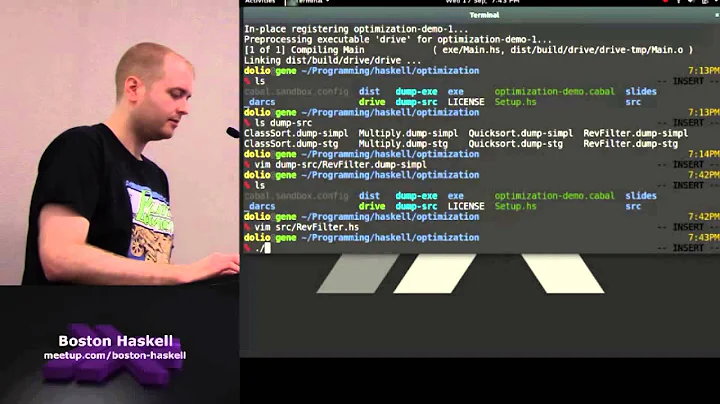Haskell syntax for a case expression in a do block
Solution 1
return is an (overloaded) function, and it's not expecting its first argument to be a keyword. You can either parenthesize:
module Main where
import System(getArgs)
main = do
putStrLn "This is a test"
s <- foo
putStrLn s
foo = do
args <- getArgs
return (case args of
[] -> "No Args"
[s]-> "Some Args")
or use the handy application operator ($):
foo = do
args <- getArgs
return $ case args of
[] -> "No Args"
[s]-> "Some Args"
Stylewise, I'd break it out into another function:
foo = do
args <- getArgs
return (has_args args)
has_args [] = "No Args"
has_args _ = "Some Args"
but you still need to parenthesize or use ($), because return takes one argument, and function application is the highest precedence.
Solution 2
Equivalently:
foo = do
args <- getArgs
case args of
[] -> return "No Args"
[s]-> return "Some Args"
It's probably preferable to do as wnoise suggests, but this might help someone understand a bit better.
Related videos on Youtube
Ted
Updated on June 12, 2020Comments
-
Ted almost 4 years
I can't quite figure out this syntax problem with a
caseexpression in adoblock.What is the correct syntax?
If you could correct my example and explain it that would be the best.
module Main where main = do putStrLn "This is a test" s <- foo putStrLn s foo = do args <- getArgs return case args of [] -> "No Args" [s]-> "Some Args"A little update. My source file was a mix of spaces and tabs and it was causing all kinds of problems. Just a tip for any one else starting in Haskell. If you are having problems check for tabs and spaces in your source code.
-
wnoise over 15 yearsThis method does nicely emphasize the first-class nature of IO actions.

![[Haskell] 018 - Case expressions](https://i.ytimg.com/vi/X07C2ppmcls/hq720.jpg?sqp=-oaymwEcCNAFEJQDSFXyq4qpAw4IARUAAIhCGAFwAcABBg==&rs=AOn4CLD4-bw4BnkTzTDQo58M0cw6ok0oeA)






